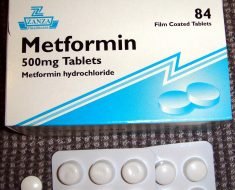(HealthDay)—When kidney cancer strikes, surgical removal of the organ is often the standard course of action.
But new research supports a nonsurgical approach for some patients: using a needle to “zap” kidney tumors away with either heat or cold.
The procedure—known as percutaneous ablation—isn’t applicable to all kidney cancer patients. But for a “well-selected” group with small tumors (under 4 centimeters in diameter), it may result in long-term survival equal to that of surgery, with five times fewer complications, the study found.
That means “fewer complications and less chronic renal [kidney] insufficiency” for patients who get the procedure, said a team led by Dr. Adam Talenfeld, of Weill Cornell Medicine in New York City.
The researchers published the findings June 25 in the Annals of Internal Medicine.
One kidney cancer specialist not involved with the study said treatment options keep evolving.
“Treatment of kidney cancer has seen revolutionary changes—from the days of open incision to laparoscopic and robotic removal—allowing for improved recovery and preservation of kidney function,” explained Dr. Louis Kavoussi. He directs urology at Northwell Health in New Hyde Park, N.Y.
But he said when it comes to the successful use of ablation, “tumors need to be less than 3 centimeters in size [slightly above an inch] and in a place that is not next to another organ, as the energy to destroy the tumor can cause injury to other sites.”
In the new study, Talenfeld’s group tracked post-procedure complications and five-year outcomes for more than 4,300 patients diagnosed with early stage kidney cancer, with tumors under 4 centimeters wide. Patients averaged 66 years of age.
The investigators found that patients had similar overall five-year kidney cancer survival whether they received surgery to remove a part of the kidney (98 percent survival) or ablation (95 percent). The odds of surviving kidney cancer after five years were similarly high as well when comparing ablation to complete kidney removal.
When the researchers looked at deaths from any cause, five-year survival was somewhat higher for patients who got surgery (86 percent) versus those who underwent ablation (77 percent).
However, there may have been a payoff for ablation in terms of quality of life—people who got the procedure were more likely to retain good kidney function than those who got surgery, the research team noted.
Also, the rate of complications during the month after their treatment was much higher for patients who underwent surgery (about 30 percent) versus those who got ablation (6 percent).
Talenfeld’s group stressed that the superiority of ablation may apply only to patients with smaller tumors, and might not apply to younger patients.
“This somewhat limits who may be a candidate,” Kavoussi said. And he stressed that “in order for ablation to be done properly, there needs to be an experienced and collaborative team of urologists and radiologists working together.”
Dr. Maria DeVita is training program director in nephrology at Lenox Hill Hospital in New York City. She said that before the new study, there had been “little data on the safety and outcomes of ablation” for kidney cancer.
Source: Read Full Article





